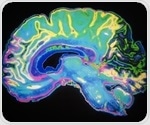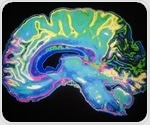| Biochemistry - Deciphering AKI Mechanisms & Breast Cancer Subtypes |
|
|
|
|
| |
|
| |
The latest biochemistry news from AZoNetwork |
|
|
|
| |
 Accelerate Your Protein Degrader Development with CRISPR Cell Lines Accelerate Your Protein Degrader Development with CRISPR Cell Lines
Proteins expressed at endogenous levels allow more accurate ranking of degrader activity, which can accelerate the discovery process. With the comprehensive selection of CRISPR-edited cell line pools and clones for popular protein degradation targets from Promega, you can quantitatively measure protein degradation in real time using the luminescent HiBiT tag.
| |
|
|
| |  | | |  Researchers at the UCLA David Geffen School of Medicine, the Howard Hughes Medical Institute at UCLA and the National Institutes of Health have developed a zebrafish model that provides new insight into how the brain acquires essential omega-3 fatty acids, including docosahexaenoic acid (DHA) and linolenic acid (ALA). Researchers at the UCLA David Geffen School of Medicine, the Howard Hughes Medical Institute at UCLA and the National Institutes of Health have developed a zebrafish model that provides new insight into how the brain acquires essential omega-3 fatty acids, including docosahexaenoic acid (DHA) and linolenic acid (ALA). | | | | |  The enzyme variations of mitochondrial enoyl-CoA hydratase short-chain 1 (ECHS1) are dysfunctional. In Japan, they are mostly responsible for mitochondrial disease. The enzyme variations of mitochondrial enoyl-CoA hydratase short-chain 1 (ECHS1) are dysfunctional. In Japan, they are mostly responsible for mitochondrial disease. | | | | |  The MGAT5 glycosylation enzyme plays a crucial role in brain development, according to a study by University of California, Irvine researchers, a discovery that may contribute to new therapeutic purposes for neural stem cells. The MGAT5 glycosylation enzyme plays a crucial role in brain development, according to a study by University of California, Irvine researchers, a discovery that may contribute to new therapeutic purposes for neural stem cells. | | | | |  Carbamoyl phosphate synthetase I (CPS1) deficiency (CPS1D), a rare type of urea cycle disorder (UCD), arises from an inborn error of metabolism. Read more here/. Carbamoyl phosphate synthetase I (CPS1) deficiency (CPS1D), a rare type of urea cycle disorder (UCD), arises from an inborn error of metabolism. Read more here/. | | | | |  Research paper provides an overview of short-chain fatty acids (SCFAs) and their role in regulating gut homeostasis. It also discusses SCFA-producing bacteria and potential therapeutic approaches to boost SCFA levels in the gut to treat related diseases. Research paper provides an overview of short-chain fatty acids (SCFAs) and their role in regulating gut homeostasis. It also discusses SCFA-producing bacteria and potential therapeutic approaches to boost SCFA levels in the gut to treat related diseases. | |
|
|
|
|
|
|
|